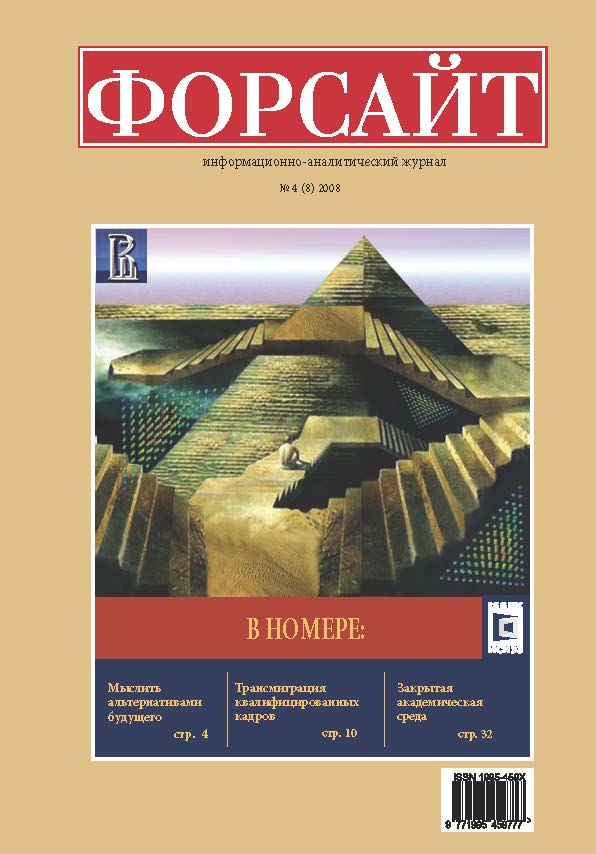Abstract
The paper presents an analysis of the comparative characteristics of the closed and open academic environment. Possible effects of formation of local academic conventions are discussed. Survey data obtained from interviews of representatives of 30 departments of universities of St. Petersburg, producing professionals in economics, allowed to estimate several parameters of the closed academic environment and its impact on the values and individual careers of lecturers. The study revealed that the environment on the surveyed faculties is characterized by high degree of isolation. It also shows the differences between the strategies and values between those lecturers who have graduated the given university and those who had received education apart.
References
Bourdieu P. Homo Academicus. Cambridge: Polity Press, 1988.
Bourdieu P. The intellectual field: a world apart. In: Burdieu P. (ed.) Essays towards a Reflexive Sociology. Cambridge: Polity Press, 1990. р. 140-150.
Harris G., Kaine G. The Determinants of Research Performance: A Study of Australian University Economists / Higher Education, Mars 1994, v. 27, № 2, p. 191-201.
Hoare A.G. Transferred Skills and University Excellence?: An Exploratory Analysis of the Geography of Mobility of UK Academic Staff / Geografiska Annaler. Series B: Human Geography. 1994, v. 76, № 3, p. 143-160.
Knorr-Cetina K. Epistemic cultures: how science makes sense (manuscript). 1995.
Ramsden P. Describing and Explaining Research Productivity / Higher Education, September 1994, v. 28, № 2, p. 207-226.
Wood F. Factors Influencing Research Performance of University Academic Staff / Higher Education, 1990, v. 19, № 1, p. 81-100.
Александров Д.А. Почему советские ученые перестали печататься за рубежом: становление самодостаточности и изолированности отечественной науки / Вопросы истории естествознания и техники, 1996, № 3, c. 3-24.
Александров Д.А. Ученые без науки. Институциональный анализ сферы / Публичная лекция «Полит.ру». 10 февраля 2008. Получено на: http://www.polit.ru/science/2006/03/06/aleksandrov.html.
Кузьминов Я.И., Юдкевич М.М. Университеты в России и в Америке: различия академических конвенций / Вопросы образования, 2007, № 4, c. 141-158.
Куренной В. Государство, капитал и мировое научное сообщество / Отечественные записки, 2002, №7.
Погорелов Ф., Соколов М. Академические рынки, сегменты профессии и интеллектуальные поколения: фрагментация петербургской социологии / Журнал социологии и социальной антропологии, 2005, т. 8, № 2 (31), с. 76-92.
Фрумкина Р.М. Бросая в воду камешки… / Polit.ru, 2007, 23 августа.

This work is licensed under a Creative Commons Attribution 4.0 International License.

